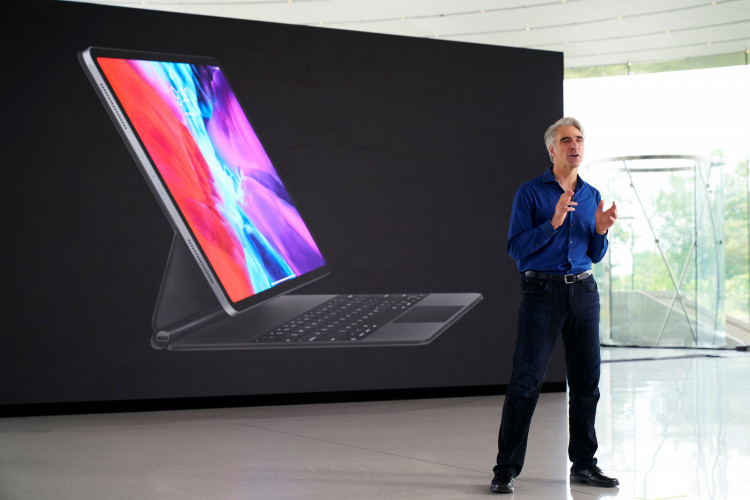Apple CEO Tim Cook has been pushing the idea that the iPad will soon take the place of laptop - that people will rely solely on the device as their daily driver instead of the MacBook. A case in point is the iPad Pro that when used with the right accessory can fully function as a portable computer. Going forward, the tablet is getting more exciting enhancements.
The latest spotted clue on future iPad upgrades is the likely use of Mini-LED display, which obviously is a flavor of OLED that soon will be standard on all iPhone models. If this will be the new reality for the Apple tablet, an updated iPad Pro could drop later this year with Mini-LED display that LG will supply.
The new iPad will boast of a 12.9-inch screen and BGR said the device is expected to be slimmer than ever, and the trimming down would be due to the use of the new display technology. It was suggested too that Mini-LED will deliver the same vivid display as in the previous iPad iterations but the upcoming will be more energy-efficient, as usual the case for devices with OLED display technology.
Mini-LED in the iPad Pro will be the first for the flagship tablet but the same report said Apple intends to use the same technology in other devices, meaning the iPhone or the MacBook lineup could be getting the same treatment as early as next year.
This could mean that Apple is streamlining its product portfolio and the possibility is there that there offerings that eventually will be merged. The 2020 WWDC introduced the Apple Silicon, which in fact is the tech giant taking full charge of its hardware business.
In such a case, fusing two products for instance would be easier. CNET said this could first be manifested with the iPad Pro that Apple has undeniably engineered to become as powerful as its MacBook cousin.
If this is the goal, then the upcoming iPadOS 14 release has to serve as the most glaring indication of Apple's design for the flagship tablet. The mobile operating system, when it goes live, will mimic many of the functions that people normally associate with the MacBook, and more.
In other words, the end-goal for Apple is to grey out the distinction between the laptop and the tablet that people will need to pick as their optimal productive partner. And it would appear that Apple prefers the iPad survive the friendly competition.
For now, the tech giant is silent on this possibility but the signs are out there. Starting in the last quarter of the year, Apple Silicon will start powering the MacBook line and this will mark the company's eventual transition to ARM-based chip for all the gadgets coming out of its production line.
By the way, macOS is taking on a path where its difference with iPadOS would be hard to distinguish, and that should as another hint of the good things to come.


